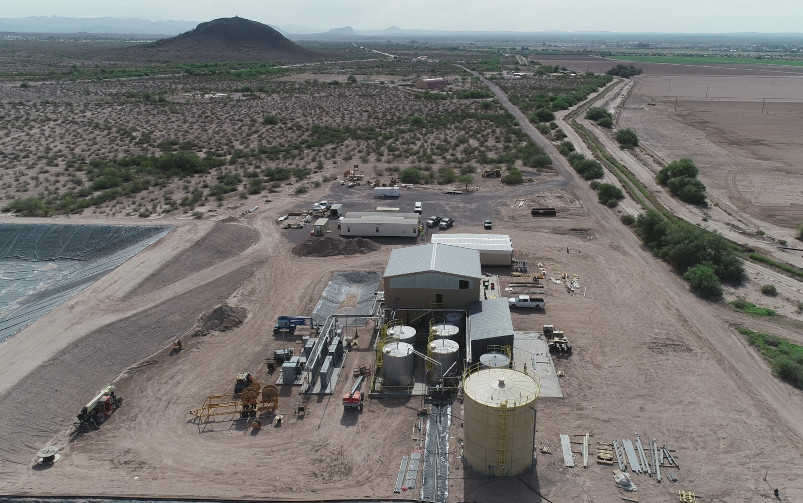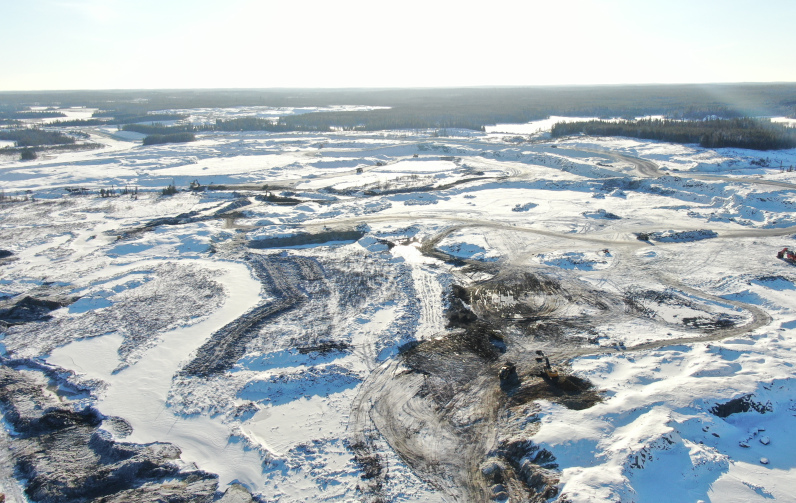Kinross Gold announced the first gold pour at its La Coipa project in Chile. Courtesy of Kinross Gold.
Editor's note: We mistakenly stated that nickel's price shot up to $100,000 per pound instead of per tonne. We sincerely regret the error.
Welcome back to your weekly mining news recap, where we catch you up on some of the news you may have missed. This week’s headlines include miners considering an exit from Russia, the importance of critical minerals and new restrictions for coal exploration in Alberta.
The London Metal Exchange did not restart the trading of nickel contracts this morning after halting them this week due to an unprecedented surge in price that brought the metal to over US$100,000 per tonne, as reported by Reuters. The spike in price is attributed to both supply concerns due to Russia’s invasion of Ukraine and a short squeeze of Chinese nickel giant Tsingshan Holding Group. LME says it is working on “appropriate operational procedures for a safe reopening.”
Like many major businesses, mining companies have begun to distance themselves from Russia over its ongoing invasion of Ukraine, as reported by Reuters. For some companies like Rio Tinto, that involves exiting joint-venture agreements with Russian companies and sourcing materials from other countries. For miners with operations in Russia such as Kinross Gold, an exit could potentially mean watching their assets become nationalized by the Russian government.
The past five months have seen MMG’s Peruvian Las Bambas copper mine face two separate blockades from local community members that have threatened to halt production entirely. According to experts, these blockades are a result of a combination of factors, including mistrust between the miner and community, mismanagement by local governments and social unrest caused by the COVID-19 pandemic. The blockades at Las Bambas are just several notable instances of mining conflicts in a region that has seen increased unrest over the past year.
Kinross announced that it had poured its first gold bar at its La Coipa project in Chile. The plant began the commissioning process in early February and is expected to reach full capacity by mid-2022. As of year-end 2021, La Coipa’s life-of-mine production was estimated at one million ounces, with the mine operating until 2026.
Newmont has received approval from the territorial and national governments for its Coffee gold project in the Yukon, as reported by Mining Technology. The open-pit gold project consists of four mines – aptly named Latte, Double Double, Supremo and Kona – and will have a 30-month construction period and a 10-year life of mine. Prior to making the decision, the Yukon government completed consultations with several local First Nation governments.
Alberta will be expanding restrictions on coal mining exploration in the Rocky Mountains as a result of recommendations made by the Coal Policy Committee, as reported by Alberta Prime Times. In addition to the reinstated 1976 coal policy remaining in effect, the exploration ban will also include Category 3 and Category 4 lands, which cover eastern portions of the Eastern Slopes and areas in the province not covered by any other category. Activities for active mines and advanced projects already in progress will be allowed to continue, however.
In the quest for net-zero emissions, Canada has a unique opportunity to help meet the global demand for the critical minerals required for low-carbon technologies. Janice Zinck, director of critical minerals and strategic resources at Natural Resources Canada, explains how Canada can take advantage of its rich deposits, highly skilled industry and ESG performance in order to become a premier supplier of critical minerals. The country is already making strides towards that goal, having released its critical minerals list in March 2021.
Applications for the Northwest Territories Mining Incentive Program are now open. Those who are selected can receive funding for up to 60 per cent of their eligible expenses (up to $240,000) for prospecting and exploration projects in the territory, which can help cover expenses caused by the impact of COVID-19. The deadline for applications is set for April 29, 2022.
Quebec Iron Ore, a subsidiary of Champion Iron, has received approval from the Quebec government for its Bloom Lake mine expansion, which will double production at the mine to 15 million tonnes per year, as reported by Mining Magazine. The Bureau of Environmental Public Hearings (BAPE) expressed concerns in a February 2021 report over the planned 800 million tonnes of mine waste to be deposited in eight lakes. Quebec Iron Ore has stated that it has continuously improved the project over the past few months.
The Mining Association of Canada has released its “Facts & Figures 2021” report, covering the state of the Canadian mining industry over the past year. Some of the sections in the report cover mining in relation to the Canadian economy, changes in sustainable development and more. According to the report, the mining industry has played a significant role in helping to recover from the COVID-19 pandemic, but Canada’s position as the dominant global mining nation could be slipping away.
That’s all for this week. If you’ve got feedback, you can always reach us at editor@cim.org. If you’ve got something to add, why not join the conversation on our Facebook, Twitter, LinkedIn or Instagram pages?




